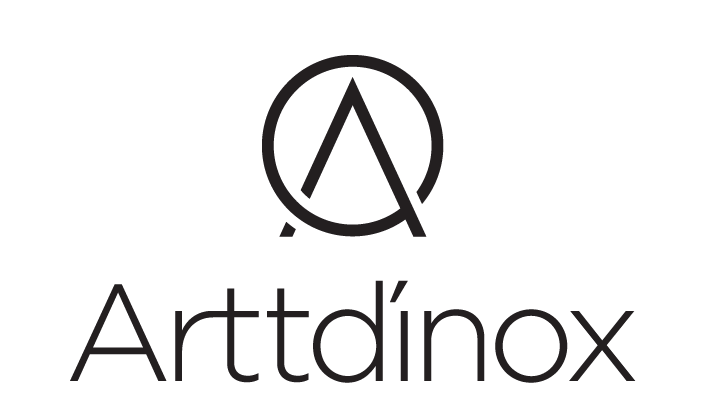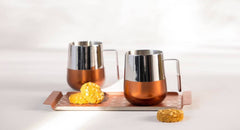Comparing Stainless Steel Cookware to Other Materials - Which is Best?
Choosing the right cookware is one of the most important decisions for any kitchen. The material you cook with doesn’t just influence taste—it affects heat control, durability, safety, and even how enjoyable cooking feels every day. With so many cookware materials available today, it’s natural to wonder: which cookware material is actually the best?
From stainless steel and cast iron to non-stick, aluminium, and copper, each option has its strengths and limitations. In this guide, we compare stainless steel cookware vs other materials to help you make an informed choice based on performance, maintenance, and long-term value—so you can invest wisely in cookware that truly supports your lifestyle.
Why Cookware Material Matters More Than You Think
Cookware is far more than just a container for cooking—it plays a crucial role in how your food is prepared, tastes, and even how healthy it remains. The material of your cookware directly impacts how heat is transferred, how food reacts during cooking, and how long your cookware performs effectively.
The right cookware material influences:
-
Heat distribution and temperature control, ensuring food cooks evenly without hotspots
-
Nutritional integrity, helping preserve the natural flavors and nutrients of ingredients
-
Consistency in cooking results, allowing better control over texture, browning, and doneness
-
Long-term safety and durability, especially when cooking acidic or high-heat dishes
Choosing the right cookware enhances not only your cooking results but also your overall kitchen experience. On the other hand, the wrong material can lead to uneven cooking, food sticking, frequent wear and tear, excessive maintenance, or the need for regular replacements. Investing in the right cookware material is, therefore, an investment in better cooking—every day.
Stainless Steel Cookware: The All-Rounder for Modern Kitchens
Stainless steel cookware is safe, durable, and ideal for all cooking methods like frying, boiling, and braising. It doesn't react with food, is easy to clean, and long-lasting. Just use the right utensil for each task.
Advantages of Stainless Steel Cookware
1. Non-Reactive and Food-Safe
Stainless steel does not react with acidic or alkaline foods, ensuring flavors remain pure and food stays safe. This makes it ideal for cooking tomato-based dishes, sauces, and curries.
2. Exceptional Durability
High-quality stainless steel cookware resists rust, corrosion, discoloration, and warping. With proper care, it can last for decades, making it a long-term investment.
3. Versatile Cooking Performance
Stainless steel cookware is suitable for sautéing, boiling, simmering, frying, braising, and even oven use. It transitions seamlessly from stovetop to oven.
4. Easy Maintenance
It is easy to clean, often dishwasher-safe, and does not require seasoning or special care routines.
5. Enhanced Heat Distribution (Multi-Layer Designs)
Premium stainless steel cookware—like Arttdinox designs—features aluminum or copper cores for even heat distribution and precise temperature control.
Limitations of Stainless Steel Cookware
One drawback is heat conductivity. Stainless steel cookware lacks the heat conductivity of various other materials. Many best stainless steel cookware items feature copper or aluminum cores to enhance heat dispersion.
However, these are minor trade-offs considering its longevity, safety, and versatility.
Cast Iron Cookware:
Cast iron cookware is made from a durable iron alloy known for excellent heat retention and even cooking. Formed by pouring molten iron with added carbon into molds, it's ideal for slow cooking and high-heat searing. Its long-lasting performance makes it a contender for the best cookware material.
Pros: Due to its exceptional ability to retain heat, cast iron cookware is an excellent material for both slow cooking and frying.
If cast iron cookware is adequately maintained, it has the capacity to endure for multiple generations. This showcases one of the significant cast iron cookware benefits.
The product is designed to be used for cooking on a hob, oven, and even a campfire, showcasing its versatility.
Cons: Cast iron cookware is rather heavy, which can make it challenging to work with.
Its non-stick qualities need seasoning to stay that way and prevent corrosion. More intensive cleaning can be required.
Can interact with foods high in acids, influencing the dish's taste and appearance.
Non-Stick Cooking Tools:
Pros: Food releases readily; hence, cooking and cleaning are easier. Since low-fat cooking benefits from less oil or fat, healthier cooking calls for this.
Usually lighter-weight than other cookware materials.
Cons: The non-stick coating might wear off over time, particularly if improperly maintained (e.g., using metal utensils or excessive heat).
Generally not suited for high-heat cooking, which can harm the coating.
Modern materials are usually considered safer, but older non-stick coatings—e.g., Teflon—have drawn health questions.
Aluminum Cookware:
Pros: Aluminum is a fantastic heat conductor that guarantees uniform cooking.
Lightweight: Simple handling and maneuverability.
Generally more reasonably priced than other cookware materials.
Cons: Because of its acidic or alkaline reactions, bare aluminum can alter the flavor of food and even leach into it.
Softer than other metals, it is more likely to dent and scratch. Aluminum that has been anodized is superior and more long-lasting.
Copper Cookware:
Copper cookware is made from copper metal, valued for its quick, even heat distribution. It’s often lined with stainless steel or tin to ensure safe cooking.
Pros: Copper offers great heat dispersion and exact temperature control.
Copper cookware is aesthetically pleasing and typically found in luxury kitchens.
Cons: Maintenance calls for consistent polishing to keep it looking good. The outside is readily tarnished.
Copper cookware is typically coated with another metal like stainless steel cookware since some foods can react with it.
Usually, copper cookware is really pricey.
Cookware Material Comparison: Pros, Cons & Best Use

|
Material |
Pros |
Cons |
Best For |
|
Stainless Steel |
Durable, non-reactive, rust & corrosion resistant, easy to clean, even heat distribution |
Poor heat conductivity (unless layered), food may stick, higher cost |
Everyday cooking, sautéing, boiling |
|
Cast Iron |
Excellent heat retention, long-lasting, versatile (stove, oven, campfire) |
Heavy, needs seasoning, reacts with acidic food, tough to clean |
Slow cooking, frying, baking |
|
Non-Stick |
Easy food release, easy to clean, requires less oil, lightweight |
Coating wears off, not suitable for high heat, health concerns with old coatings |
Low-oil cooking, eggs, pancakes |
|
Aluminum |
Great heat conductor, lightweight, affordable |
Reacts with food, dents easily, bare aluminum can leach unless anodized |
Quick meals, budget-friendly options |
|
Copper |
Quick, even heating, health benefits, elegant look |
Expensive, tarnishes, needs polishing, must be lined to avoid food reactions |
Professional or luxury cooking |
Why Choose Arttd'inox Stainless Steel Cookware?
Arttd'inox represents the perfect harmony of premium-grade stainless steel, precision engineering, and contemporary design. Every cookware piece is thoughtfully crafted to meet the demands of modern kitchens while delivering professional-level performance.
Arttd'inox stainless steel cookware offers:
-
Superior heat distribution for consistent, evenly cooked meals
-
Exceptional durability that resists warping, corrosion, and everyday wear
-
Food-safe, non-reactive surfaces that preserve the natural taste and nutritional value of your ingredients
-
Refined, modern aesthetics that elevate both your cooking experience and kitchen décor
Designed for discerning home cooks and culinary enthusiasts alike, Arttdinox cookware goes beyond functionality. It is cookware that performs effortlessly, lasts for years, and looks as sophisticated on your kitchen shelf as it does on the stove.
Finally, Which is Better?:
The best cookware material mostly depends on your cooking method, tastes, and priorities. This is a brief review:
- When it comes to nonreactivity, flexibility, and durability, stainless steel cookware is your best bet. It is perfect for daily use and many cooking techniques.
- Cast iron cookware is best suited for durability and heat retention and is perfect for slow cooking and searing over high heat. When comparing cast iron vs stainless steel, the choice depends on your specific cooking needs.
- Between stainless steel vs nonstick cookware, non-stick is best for simple cooking and cleaning when it comes to delicate dishes like eggs and pancakes.
- Aluminum is reasonably priced and best for even and speedy heating. It is perfect for regular cooking, yet for more durability, consider anodized.
- The best for exceptional heat conductivity and accuracy is copper. Perfect for dedicated home cooks and professional chefs who are not bothered by maintenance or cost.
In the end, many home cooks discover that combining these ingredients works best for their particular cooking needs, applying each for different jobs. When you decide, consider money, maintenance preferences, and cooking habits. Welcome cooking!







Leave a comment
Note: Comments are published after moderation.